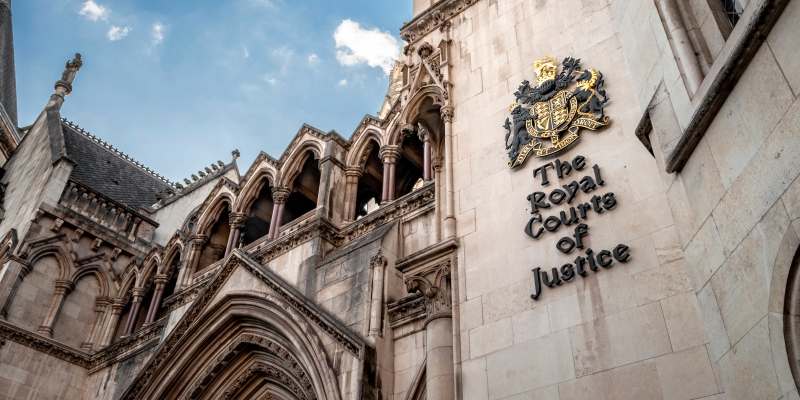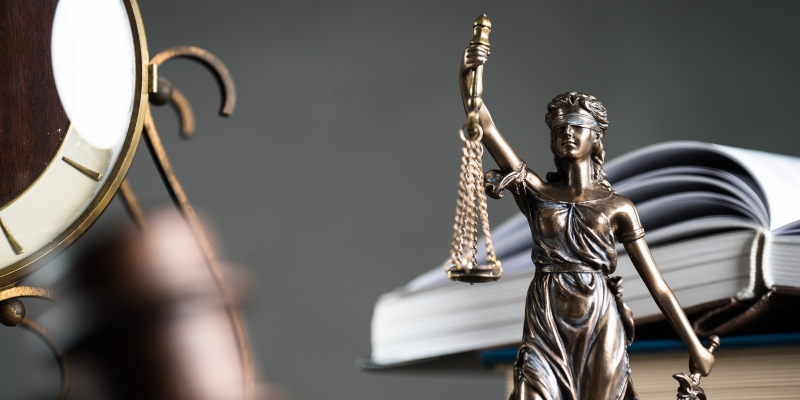Civil law in the UK

There is no universally recognised system for classifying the rights and freedoms of citizens in the UK. Although the traditional division into political, economic and social rights and freedoms is applied with some refinements.
The UK does not have a document called a ‘constitution’. The legal system is made up of various legal acts, precedents, treaties and traditions. These elements together define the basic principles and the way the country is governed.
The underlying documents are:
- Magna Carta (Great Charter of Liberties) — 1215;
- Bill of Rights — 1689;
- Act of Settlement — 1701.
In addition, court judgements, customs and traditions play an important role in shaping the legal framework of a country.
Of particular importance for residents are individual rights and freedoms, limited by the state in accordance with social agreement and derived from the principle: everyone may perform acts not prohibited by law.

Citizenship in the UK: citizens or subjects?
The question of citizenship and the status of citizens in the UK has become increasingly complex in the context of the existence of a monarchy in the country alongside democratic institutions. The structure of government, where there is a queen or king, raises questions about who exactly is a citizen and who is a subject.
In a democratic society, citizens have rights and have the opportunity to influence decisions that affect their lives and society as a whole. They are able to express their opinions and choose representatives who will protect their interests. Thus, those who have influence over how they are governed and can express their views on governance processes can be considered citizens.
At the same time, under the control of the monarch, individuals may be regarded as subjects who remain loyal to the monarchy or the state. This status emphasises their subordination to the monarch and their traditional connection to the royal family. In this context, it could be said that British citizens only theoretically fit the definition of subjects rather than citizens.
The UK is a parliamentary monarchy where an elected parliament can make and pass laws. This means that, in practical terms, citizens have the rights and powers of a democratic society. They have the right to vote and can participate in political processes, which is consistent with the concept of citizenship.
Despite the fact that the country is a parliamentary monarchy, in practice Britons are considered citizens because they have the rights and freedoms inherent in a democratic society. In this context, the status of a citizen in the UK combines both elements of subordination to the monarchy and democratic principles.
Fundamental rights and freedoms of British citizens
Freedom of speech and expression
Freedom of speech and expression is one of the fundamental principles on which a democratic society is built. The UK attaches particular importance to this, ensuring that its citizens have the right to express their opinions and ideas freely, no matter how controversial or unpopular they may be. This right is protected by the law of the land as well as international human rights standards. But it must be remembered that freedom of speech must not violate the rights of others or carry with it calls for violence or hatred.
Right to privacy
The right to privacy guarantees every UK citizen protection from unlawful interference in their private life. This means that the state and other private individuals are not allowed to collect or use citizens’ personal data without their consent, except as permitted by law. The protection of privacy includes the confidentiality of correspondence, telephone conversations, and the protection of personal data in the digital space.
Right to a fair trial
This right is considered to be one of the fundamental principles of the rule of law. British citizens have the right to a fair and open trial before an independent and impartial tribunal. This right is protected not only by domestic law but also by international human rights law. Important aspects of a fair trial include the presumption of innocence, access to qualified legal assistance and the possibility of appealing against judgements.
Right to education
The right to education is recognised as a key element of social justice and economic development. The UK places particular emphasis on ensuring that all citizens have access to quality education regardless of their social status, race or ethnicity. The government provides free education for all children between the ages of 5 and 16, as well as financial support for university students. In addition, the Government was taking steps to promote access to education for persons with disabilities. They are assisted with training and employment.
The right to freedom of assembly and association
Freedom of assembly and association plays an important role in safeguarding democratic principles and protecting the interests of citizens. British citizens have the right to freely assemble and express their views in peaceful assembly, and to form associations and unions to defend their rights and interests. The state is committed to protecting this right and providing the necessary security guarantees for peaceful events.
Civil law in England: what it means to be British
Apart from the basic rights outlined above, the rights of Britons can be roughly divided into three categories:
Legal Rights. These include freedom of religious belief – citizens have the right to practise any religion or belief and to change their religious affiliation without restriction by the state. Legal Rights also include the right to property – Britons have the right to own, use and dispose of their property in accordance with the law.
The Social Rights of Britons (Social Rights) provide access to the National Health Service (NHS), where citizens are guaranteed free healthcare.
In addition, every Briton has the right to free education in state schools and colleges until the age of 18. Also, civil law in England provides for the right to employment and equal opportunities in the labour market in accordance with the law. It is worth considering that in British society great attention is paid to ensuring equality between the sexes. To achieve this goal, a special law on the prohibition of discrimination on the grounds of sex was adopted in 1975, and the following changes were made in 2002.- Political Rights. Currently, all British citizens over the age of 18 have the right to vote. Under the Representation of the People Act 1983, this right is also granted to citizens of the Republic of Ireland and Commonwealth citizens resident in the UK. Aliens, persons with mental disabilities and those convicted of breach of electoral integrity are not eligible to vote. Passive suffrage is available to citizens of the United Kingdom who have reached the age of 21, except for those who are disenfranchised from active suffrage and bankrupts.
So, “being British” means having all the rights and freedoms of a British citizen. This includes the right to freedom of speech and religion, free healthcare, to vote in elections and more.

Duties of UK citizens
British citizens have a number of duties to their country alongside the rights they enjoy. These duties are the foundation of civic participation in public life and play an important role in the rule of law, the development of democracy and the prosperity of society as a whole:
- Obligation to pay taxes. Taxes are the main source of funding for public programmes and services, such as health, education and social protection, and their payment ensures the functioning of the state apparatus;
- The obligation of citizens to participate in elections and vote for candidates who they believe best represent their interests. This is the basis of the democratic process and allows citizens to express their will on important political and public issues;
- Respect for the law. Maintaining law and order and respect for the law contributes to public safety and stability, which is the basis for the development of society and the protection of the rights of every member of society;
- Some citizens may be summoned to serve as jurors. Their task is to participate in trials and make informed decisions based on the evidence presented, thus ensuring fairness in the judicial system;
- The duty to respect the rights and freedoms of other citizens, observing the principles of tolerance and non-interference in the personal and civil liberties of others;
- Active participation in public life and civic engagement are also important responsibilities of citizens. This includes taking part in public debates, defending the rights and interests of minorities, and actively supporting initiatives aimed at improving public welfare.
The duties of UK citizens are therefore an integral part of citizenship and play an important role in maintaining democratic values, the rule of law and social solidarity in society.


